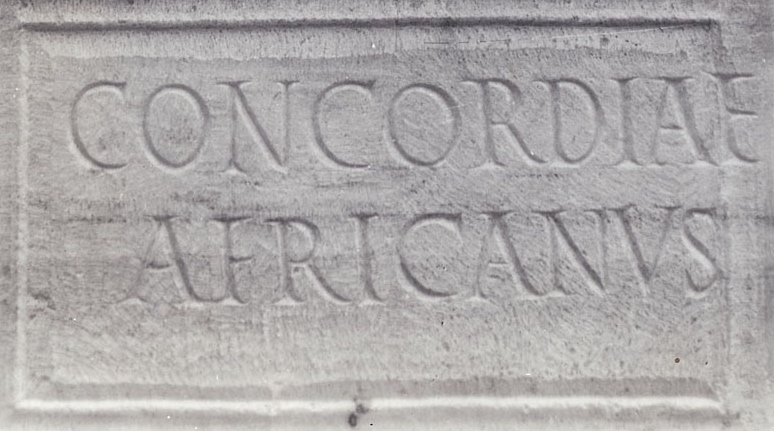Description: Tomb of rubble, with a plaster surface, the largest and most complete of the group; w:
2.65 x h:
0.39 x d:
1.05, supported on a plinth
w:
0.21-0.24.
Text: Carefully incised on the south face with slight traces of rubrication: there is a double line incised and painted between
the lines.
Letters: No measurements
Date: Fifth-sixth century CE (context, lettering)
Findspot:
Tripoli: Ain Zara,
cemetery, Tomb 28.
Original location: Findspot
Last recorded location:
Findspot (1911-1914)
Interpretive
((crux)) Iṇ ọḳ tuṃ<u>lọ ịạḳẹ[t c. 10]
[c. 4]I B[on?]ifati qui fuerạṭ suị[s amabilis?]
[c. 4] p̣ẹḳ[t]ọre karus quem a{n}tra dies absṭ[u]ḷị[t].
bixit in paḳẹ p̣ḷus miṇus anos XXVIII. Rekessịṭ
5de ok sekulo die XXIII m(ensis) Maiụs indiktio VIII
Requiem eternam de<t> tibi D(omi)n(u)s.
Diplomatic
† I...TU.L.....[.··········]
[····]IB[..]IFATIQUIFUER..SU.[.........]
[····]...[.].REKARUSQUEMANTRADIESABS.[.]..[.]
BIXITINPA....USMI.USANOSXXVIIIREKESS..
5DEOKSEKULODIEXXIIIMMAI.SINDIKTIOVIII
REQUIEMETERNAMDETIBIDNS
English translation
Translation by: Charlotte Roueché
In this grave lies [the body] of Bonifatius, who was [lovable to his own] dear in heart, whom a black day took away. He lived
in peace for more or less 28 years; he left this world on day 23 of the month May, indiction 8. May the Lord grant you rest
eternal.
Bibliography: Aurigemma, 1932, 28 and fig.68; mentioned and indexed IRT, 1952, 261, whence mentioned IRT, 2009, 261
Images
 Fig. 1
Fig. 1. Drawing (Luigi Turba)

